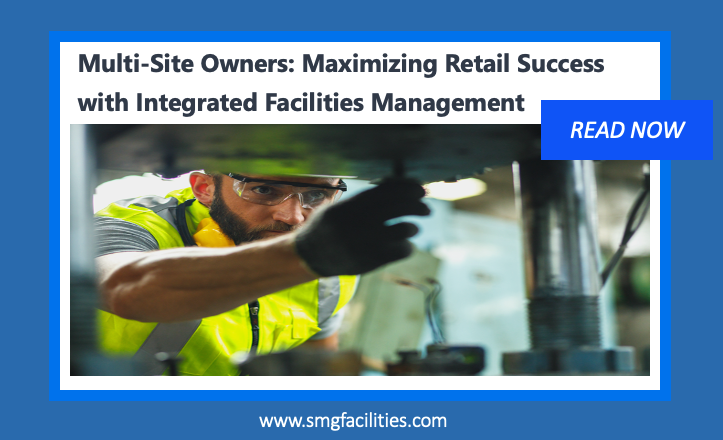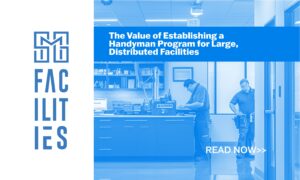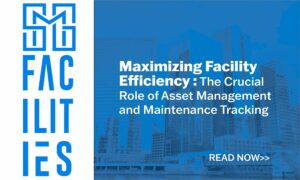In the ever-evolving world of retail, success is contingent upon delivering exceptional customer experiences while maintaining operational efficiency. For multi-site retail owners with distributed portfolios and thousands of critical assets, achieving these goals can be a complex endeavor. This is where Integrated Facilities Management (IFM) steps in as a game-changer, offering a holistic approach that creates substantial value for multi-site retailers and property owners alike.
The Challenge: Navigating Complex Portfolios with Critical Assets
Distributed retail portfolios encompass a variety of locations, each with unique needs, challenges, and requirements. Managing these diverse assets efficiently while ensuring customer satisfaction can be daunting. Critical assets, such as HVAC, refrigeration, EMS, etc. demand specialized attention to prevent disruptions that could impact revenue and brand reputation.
The Power of Integrated Facilities Management (IFM)
Integrated Facilities Management is a comprehensive approach that combines various services, including maintenance, janitorial, fire life safety, energy management, and more, under a single umbrella. Here’s how IFM can create significant value for retail owners with distributed portfolios and critical assets:
- Streamlined Operations: IFM centralizes facilities management activities, ensuring consistent processes across all locations. This approach minimizes redundancies, enhances communication, and streamlines operations, leading to improved overall efficiency.
- Cost Efficiency: By consolidating services, IFM optimizes resource allocation and procurement. Proactive response, strategic purchasing and standardized practices result in cost savings that can be reinvested in enhancing customer experiences or expanding the retail footprint.
- Enhanced Customer Experience: Well-maintained and properly managed retail spaces are critical for attracting and retaining customers. IFM ensures that each location meets high standards, creating a positive and consistent shopping experience that reflects well on the brand.
- Risk Mitigation: Critical assets require vigilant monitoring to minimize disruptions. IFM employs predictive maintenance strategies, reducing downtime and potential losses. Moreover, effective security measures within the IFM framework safeguard assets from threats.
- Data-Driven Insights: IFM leverages data analytics to identify trends and patterns across the portfolio. This insight helps retailers make informed decisions, from optimizing store layouts to adjusting operating hours based on foot traffic patterns.
- Flexibility & Scalability: As retail needs change, IFM adapts accordingly. Whether scaling up for peak seasons or downscaling during slow periods, the integrated approach ensures that resources are allocated appropriately.
- Sustainability: Energy and resource management are vital for retailers striving to minimize their environmental impact and better align with corporate ESG initiatives. IFM incorporates sustainable practices, reducing energy consumption and waste across the portfolio.
- Focus on Core Competencies: Retail owners can concentrate on strategic initiatives and core business activities instead of getting bogged down by day-to-day facilities management concerns. This focus drives innovation and growth.
Success Stories: Real-World Applications
Several retailers have reaped the benefits of IFM:
- Global Jewelry Retailer: With locations spanning the globe, this retailer implemented IFM to maintain consistent brand standards and optimize costs. IFM allowed them to redirect savings into technology enhancements, resulting in a more personalized shopping experience.
- Luxury Goods Brand: For this luxury brand, flagship stores are pivotal for brand identity. IFM ensured that these critical assets were impeccably maintained, preserving the brand’s reputation, and enhancing the customer experience.
Conclusion
In the dynamic world of retail, success hinges on creating memorable experiences for customers while efficiently managing operations. For retail owners with distributed portfolios and critical assets, Integrated Facilities Management emerges as a strategic solution. By centralizing management functions, optimizing costs, enhancing customer experiences, and mitigating risks, IFM is a catalyst for growth and innovation in the retail industry. As the retail landscape continues to evolve, embracing IFM could be the differentiator that propels retailers toward sustained success. For more information on how SMG Facilities can be a resource visit www.smgfacilities.com





